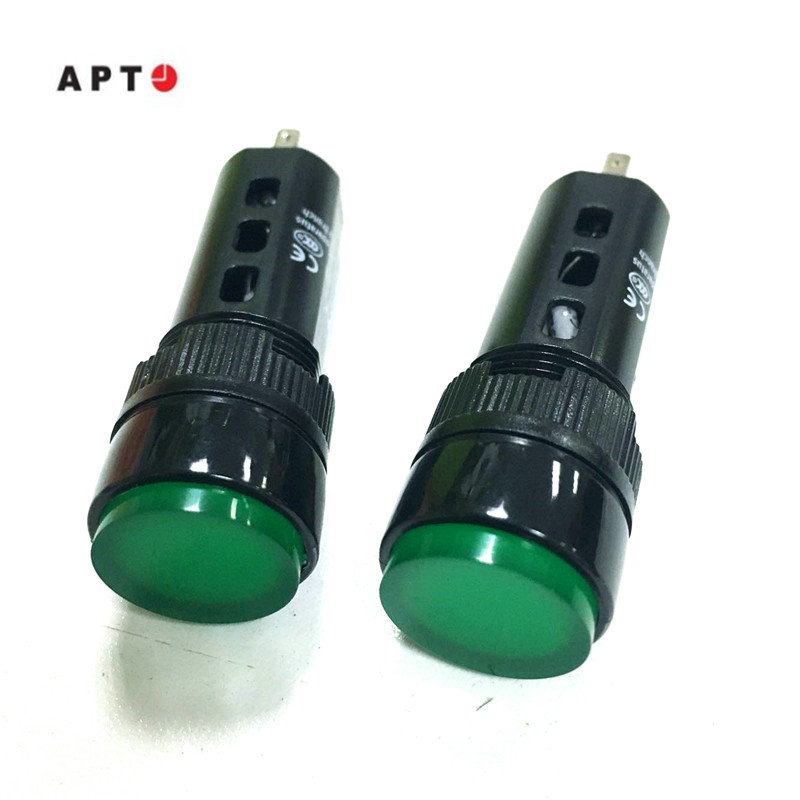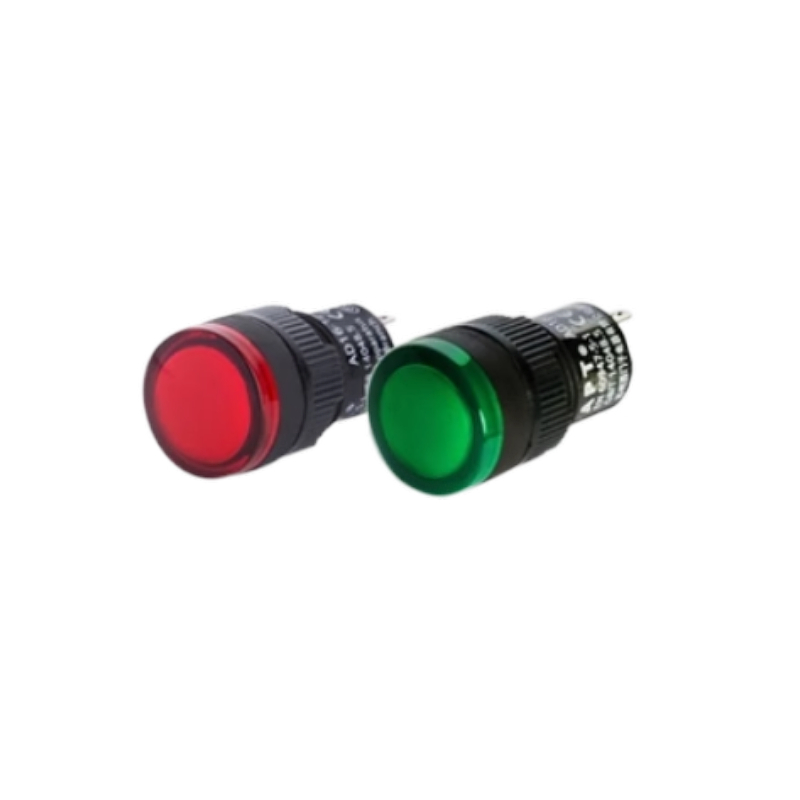What Does a Red LED Indicator Light Mean?
-
 Why Choose a Waterproof Push Button Switch 12V? A Comprehensive Guide by Shenzhen Qinao Automation Equipment Co., Ltd.2025-05-06 15:15:37
Why Choose a Waterproof Push Button Switch 12V? A Comprehensive Guide by Shenzhen Qinao Automation Equipment Co., Ltd.2025-05-06 15:15:37 -
 What Are Ground Fault Indicator Lights and Why Are They Essential for Electrical Safety?2025-04-22 16:36:39
What Are Ground Fault Indicator Lights and Why Are They Essential for Electrical Safety?2025-04-22 16:36:39 -
 What Makes LED Indicator Lights Essential in Modern Industrial Applications?2025-04-15 13:41:06
What Makes LED Indicator Lights Essential in Modern Industrial Applications?2025-04-15 13:41:06
Introduction
In the world of electronics and technology, indicator lights are an essential part of our daily lives. They provide us with visual cues about the status of our devices, from computers and smartphones to industrial machinery. Among these, the red LED indicator light is one of the most common and can convey a variety of messages. This article will delve into the meaning behind the red LED indicator light, its applications, and how to interpret its signals.
The Role of LED Indicator Lights
LED, or Light Emitting Diode, is a semiconductor light source that has revolutionized the way we use lighting in various applications. The compact size, energy efficiency, and long lifespan of LEDs make them ideal for indicator lights. A red LED indicator light, in particular, is used to signal different statuses or alerts in electronic devices.
Understanding the Red LED Indicator Light
The color red is universally recognized as a sign of warning or danger. In the context of indicator lights, a red LED can indicate a variety of issues, from low battery to error states. Understanding what a red LED means in different contexts is crucial for maintaining the health and functionality of your devices.
Applications of Red LED Indicator Lights
Computers and Peripherals
In computers, a red LED can be found on various components such as power supplies, hard drives, and network cards. For instance, a red LED on a hard drive might indicate that the drive is in a sleep mode or experiencing an error. On a network card, it could signify a link failure or high-speed data transfer.
Home Appliances
Home appliances like routers, modems, and smart home devices often use red LEDs to indicate connection status or errors. A red light on a router might mean that there is no internet connection, while on a smart home device, it could indicate a need for a firmware update.
Automotive Industry
In the automotive industry, red LEDs are used in dashboard warning lights to alert drivers to potential issues such as low oil pressure, high engine temperature, or brake system malfunctions.
Industrial Machinery
Industrial machinery uses red LEDs to signal machine status, error conditions, or safety warnings. For example, a red light on a conveyor belt might indicate that the belt has stopped due to an overload or jam.
Interpreting the Red LED Indicator Light
Troubleshooting and Maintenance
Knowing what a red LED means can help in troubleshooting and maintaining your devices. Here are some common scenarios:
Blinking Red LED
A blinking red LED often indicates a temporary issue that the device is trying to resolve. It could be a signal that the device is rebooting, or it might be a warning that a process is taking longer than expected.
Solid Red LED
A solid red LED usually signifies a more serious issue that requires immediate attention. It could mean that a device is not functioning properly, or there is a critical error that needs to be addressed.
Flashing Red LED
A flashing red LED can be a sign of a system error or a warning that a device is not operating within its normal parameters. This could be due to a hardware failure, software glitch, or environmental factor.
Safety and Precautions
When dealing with a red LED indicator light, it's important to exercise caution. If the light is indicating a safety issue, such as high temperature or pressure, it's crucial to take the necessary steps to prevent damage or injury.
The Importance of Red LED Indicator Lights in Communication
In many devices, the red LED serves as a crucial communication tool between the user and the device. It provides real-time feedback on the device's status, allowing users to take appropriate action.
Technological Advancements and the Future of Red LED Indicator Lights
As technology continues to evolve, the role of red LED indicator lights is also changing. With the advent of smart devices and the Internet of Things (IoT), these lights are becoming more integrated into our daily lives.
Smart Devices and IoT
Smart devices and IoT are making it possible for red LED indicator lights to communicate more complex information. For example, a smart thermostat might use a red LED to indicate not only the current temperature but also if the device is set to heat or cool.
Customization and Personalization
With the rise of customizable devices, users can now program their red LED indicator lights to display different colors or patterns based on their preferences or the device's status.
Energy Efficiency and Sustainability
The energy efficiency of LEDs makes them an environmentally friendly choice for indicator lights. As we move towards a more sustainable future, the use of red LED indicator lights will likely increase.
Conclusion: The Significance of Red LED Indicator Lights in Modern Technology
In conclusion, the red LED indicator light is more than just a simple light; it is a critical component in our technological landscape. It serves as a communication tool, a warning system, and a status indicator. Understanding the meaning behind a red LED is essential for maintaining the health and functionality of our devices. As technology continues to advance, the role of the red LED indicator light will undoubtedly evolve, but its importance will remain unchanged.
